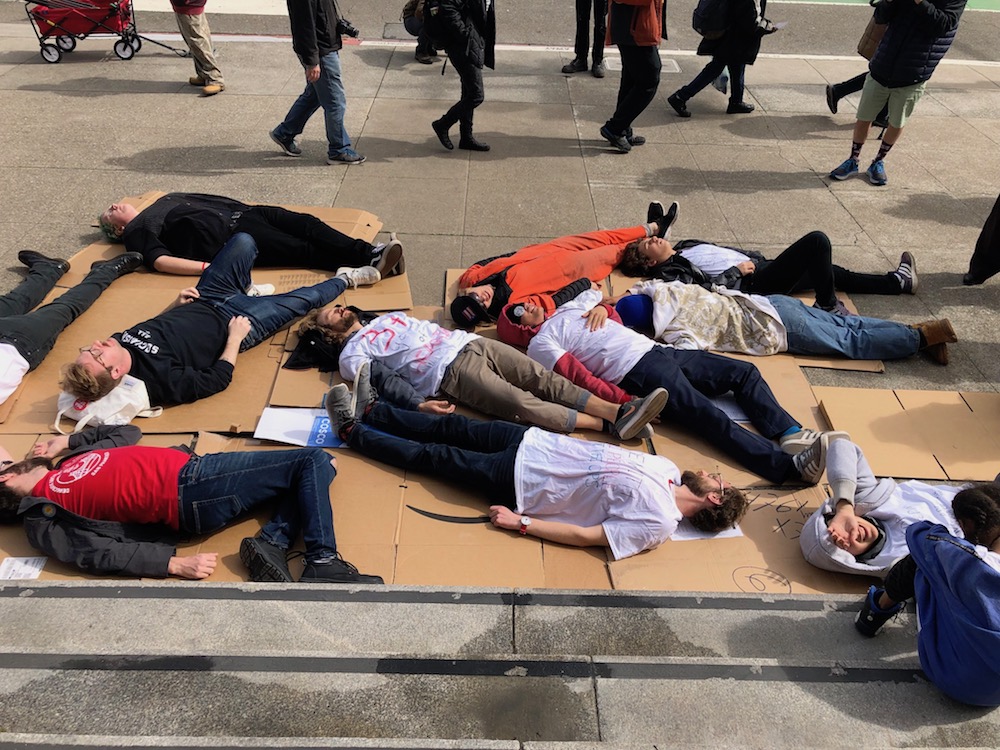In the worst of the past month’s storms, San Francisco cops were confiscating the tents of homeless people on a routine basis, a top police official testified today.
Commander David Lazar, who runs the Community Engagement Division, said under questioning from Sup. Matt Haney that the sweeps didn’t stop because of the extreme weather.

That confirms what homeless advocates have been saying all winter – that despite official denials, the city is putting people’s lives at risk by taking their survival gear.
In a remarkable exchange at a remarkable hearing, Lazar said that officers are called to intervene with homeless people at least 40-50 times a day. He said that the officers attempt to convince people to move off the streets and into city shelters.
The only shelter beds that are available are for one night only, and you can’t bring a partner, a pet, or your possessions. In many cases, those “beds” are a mat on a floor. There is no guarantee that the mat will be available the next evening – and the shelter are only open at night, so there’s no place to go during the day.
If a homeless person finds a tent far preferable to that situation, and declines a floor mat, the officers issue a misdemeanor citation for illegal camping on the streets.
And after that, Haney asked?
Lazar: “We take the tent as evidence.”
Haney asked if this was happening during the recent storms. Yes, Lazar said, there has been no change in procedure because of the weather.
The tents go into storage at a public works facility, and Lazar said that if the citation is dismissed, the person can get the tent back.
The District Attorney’s Office dismisses all of these citations as a matter of practice. But that takes a while, and there’s no easy way for a homeless person to find out – much less get proof – that the citation has been dismissed.
And as Leslie Dreyer, an organizer with the Housing Rights Committee, testified, “I have personally taken people to the DPW. They left us standing in the rain for hours.” It’s almost impossible, several people testified, ever to get those belongings back.
The hearing, at a special meeting of the Public Safety and Neighborhood Services Committee, went on for hours, with a long line of speakers discussing the human crisis of the sweeps.
Lazar said he had no data on how many tents had been seized. But homeless advocates said at least 400 had been taken in the past year.
Kelley Cutler, a human rights organizer with the Coalition on Homelessness, noted that the waiting list for a 90-day shelter bed now has 1,364 names. Scott Walton, from the Department of Homelessness and Supportive Housing, testified that the agency put out 50 additional mats during the storms.
Haney told me that was “shocking” and inadequate. He told me that the police shouldn’t be sweeping people off the street if there is no place for them to go.
The department handed out 1,600 ponchos and 1,800 emergency blankets, Walton said, and indication of how many people were suffering in the potentially lethal cold.
At one point in the hearing, several speakers read off the names of the hundreds of people who have died homeless on the streets of San Francisco. Temperatures in the 40s and torrential rain can create serious health issues for people who have no shelter.
Jeff Kozitsky, director of the homeless department, said that even the additional mats were not always occupied – because homeless people didn’t know the additional shelter existed. “We need to do a better job communicating what’s available,” he said.
Even then, what’s available is far too little and inadequate. Jordan Davis, a formerly homeless person, talked about the need for the “three Ps – partners, pets, and possessions.” Mats on the floor that don’t accept those are not going to work for a lot of people.
And despite it all, as the hard rain keeps falling, the sweeps continue.





